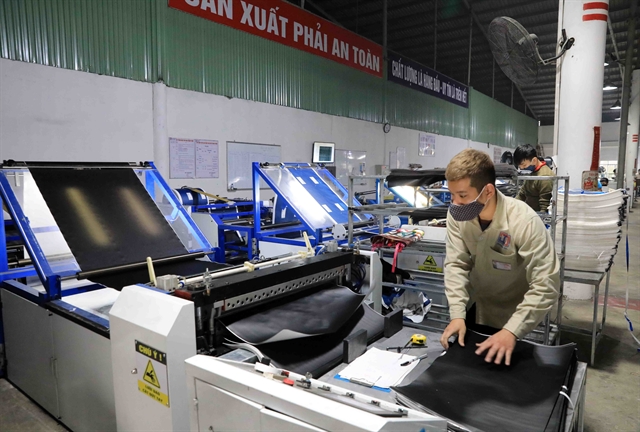 Economy
Economy


|
| Packaging production lines at Thuận Đức JSC in Hưng Yên Province. — VNA/VNS Photo Phạm Kiên |
HÀ NỘI — Industry insiders have suggested Việt Nam should set the national standards for food packaging quality to keep up with the world's sustainable production trend.
Hoàng Công Khanh from the Vietnam Packaging Association said 80-90 per cent of the packaging must meet strict standards for printing ink and paper quality so that products can be exported to the European Union, South Korea and Japan.
Local enterprises need to understand that besides the quality of products, packaging quality also has a significant impact on the process of exporting goods to overseas markets, he said.
Khanh told baodautu.vn that sooner or later, Việt Nam must have mandatory regulations related to food packaging, and then develop inspection and supervision systems.
He added that if Việt Nam wants to integrate into the global economy deeply, this trend cannot be ignored.
Deputy head of the Vietnam Standards and Quality Institute (VSQI) Phùng Mạnh Trường suggested domestic firms should pay more attention to complying with standards for food packaging, typically printing ink. That will also demonstrate their attention to the health of customers and their efforts to meet sustainable production standards in the world.
With the launch of the national printing ink standard for food packaging in late 2023, the nation is now poised to enhance food safety standards across the packaging industry.
This standard, issued by the Ministry of Science and Technology, bans the use of hazardous components in ink formulations. It excludes toluene as a solvent used in ink formulations.
Toluene is a popular solvent in the printing ink industry that has been suspected of damaging unborn children and is prevalent at levels that could affect odor and food quality.
Trường told a conference on Tuesday in Hà Nội that the introduction of this standard marks a significant milestone in ensuring the safety and quality of food packaging materials in Việt Nam.
Ensuring that printing inks meet specific safety requirements, Việt Nam can enhance consumer confidence, protect public health, and strengthen its position in the global market, he said.
Siegwerk, one of the global leaders in printing inks and coatings, said at the conference that it stands firmly behind the commitment to support this new standard.
Meanwhile, Nguyễn Thị Thu Hòa from Bình Dương Province-based Perfetti Van Melle Vietnam said that based on the requirements of the European market, her company has shifted to using printing ink that does not contain toluene since 2020. From 2021 onwards, packaging for goods provided for the domestic market has also been produced from toluene-free printing ink.— VNS




